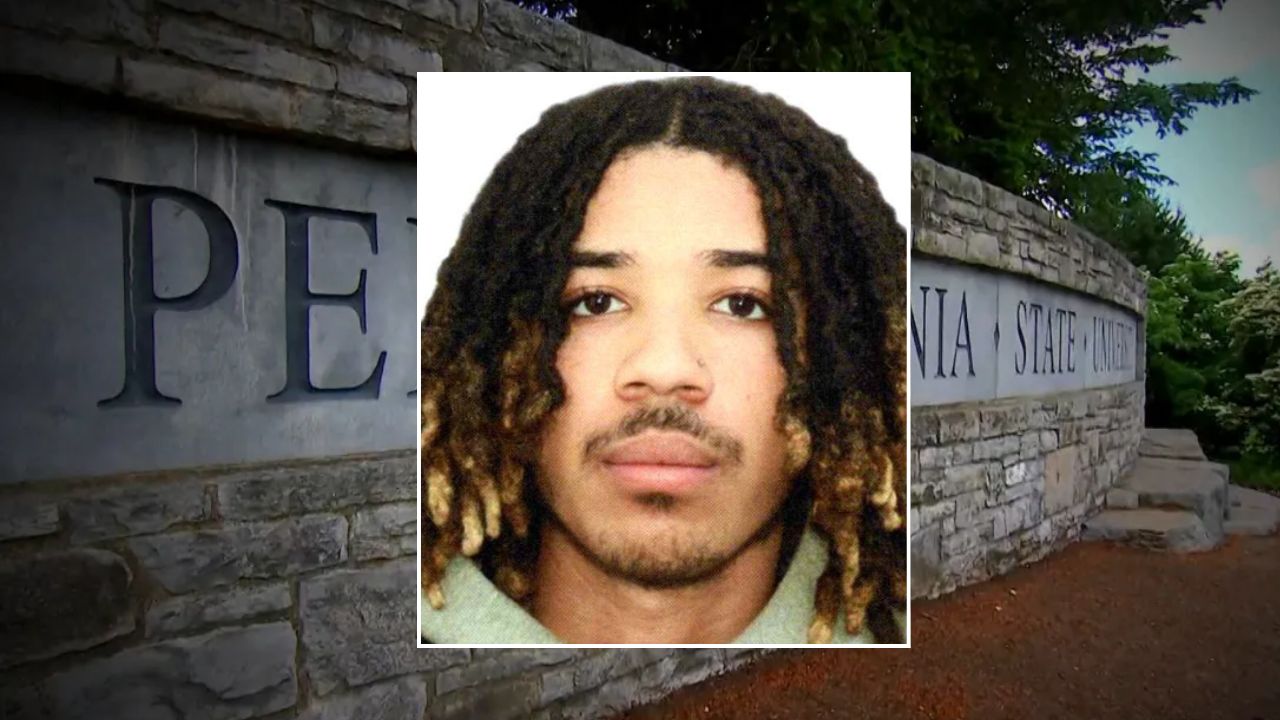Abington Township, Pennsylvania — A 19-year-old former Penn State Abington student accused of raping a fellow student on campus has surrendered to authorities, officials said. Abdul-Jabril Cooper, 19, was wanted on a warrant issued July 16, 2025 by the Montgomery County District Attorney’s Office in connection with an alleged 2024 assault inside a campus apartment. According to the U.S. Marshals Service, Cooper turned himself in one day after his photo was released to the public.
Charges and timeline
Investigators say the alleged assault occurred in September 2024 inside a PSU Abington apartment. Afterward, Cooper disenrolled from the university and could not be located. The U.S. Marshals Service Eastern Pennsylvania Violent Crime Fugitive Task Force announced that a wanted bulletin with Cooper’s image went public—and he surrendered within 24 hours. Supervisory Deputy U.S. Marshal Robert Clark called campus rape “a betrayal of safety that deserves immediate justice,” urging accountability for crimes committed on college grounds.
How authorities located him
Officials credit a multi-agency effort involving Penn State University Police and the Montgomery County DA’s Office. Fugitive task forces routinely coordinate surveillance, public tips, and interagency databases to bring in suspects. In this case, public exposure via the wanted photo appears to have accelerated the arrest. Anyone with additional information related to the case can contact local law enforcement or submit tips through the U.S. Marshals tip line.
What we know about the case
Authorities allege the victim—a female student—was assaulted inside Cooper’s Abington campus apartment. Cooper has been charged in connection with the incident and is expected to face court proceedings in Montgomery County. Officials have not released additional details to protect the integrity of the investigation and the privacy of the victim. Campus sexual assault cases often involve parallel criminal and university processes, including emergency interim measures and disciplinary investigations.
Campus safety, Title IX, and your rights
Universities receiving federal funds must follow Title IX, which requires schools to promptly respond to reports of sexual harassment and assault and offer supportive measures to complainants. Students and families can review federal guidance through the U.S. Department of Education’s resources on Title IX responsibilities. Schools also have annual public safety reporting duties under the Clery Act, including timely warnings and daily crime logs; learn more from the nonprofit Clery Center’s overview of Clery Act requirements.
For confidential support and reporting options, survivors nationwide can contact RAINN. Its site explains how to preserve evidence, seek medical care, and navigate law enforcement or campus processes; start with RAINN’s guide to sexual assault reporting and support.
Read Also: Former Northern Colorado School Counselor Arrested for Alleged Sexual Assault of Student
Practical steps for students and parents
- Report immediately: Use campus police or 911 if someone is in danger. Follow up with campus Title IX to request supportive measures such as no-contact orders, housing changes, or academic adjustments.
- Document and preserve: Save messages, photos, and any potential evidence. Consider a forensic exam even if you’re undecided about pressing charges; RAINN outlines how exams work and where to go.
- Know the safety tools on your campus: Many schools, including Penn State Abington, post emergency numbers, escort services, and safety apps on their websites; check PSU Abington Police and campus safety pages through Penn State University Police & Public Safety.
- Seek victim services: Pennsylvania residents can explore state victim assistance and compensation options through the Office of Victim Advocate and county-level programs; start with the Pennsylvania OVA’s page on victim services and rights.
What happens next in Cooper’s case
Following surrender, the process typically includes booking, an initial appearance/arraignment, and bail determinations. Prosecutors decide on formal charges, and defense counsel may seek discovery or negotiate pretrial motions. If the matter proceeds, preliminary hearings, suppression issues, and trial are possible. Throughout, the DA’s Office can coordinate with the victim on safety planning and case updates. While every case differs, campus-related prosecutions often rely on digital evidence, witness statements, access records, and forensic results.
Bottom line: Cooper has surrendered, the case is active, and authorities say they’re pursuing accountability. Students and families can protect themselves by understanding Title IX rights, Clery Act alerts, and the local resources designed to support survivors.
Have thoughts on campus safety—or tips we should know about? Continue the conversation at ibwhsmag.com.


 by
by 

